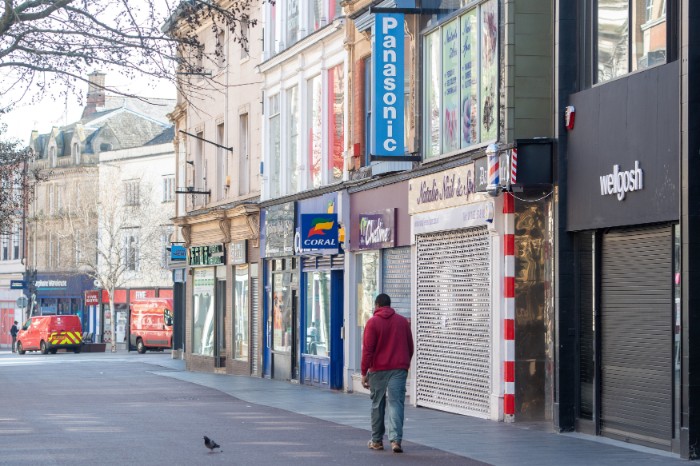// Total net loss of 6,001 stores in 2020, double the rate of closures in 2019
// York, Durham and Corby are worst-hit areas
// Despite results, Local Data Company says “there are opportunities for retailers who are able to weather this storm”
A whopping 11,000 shops have been forced to close in the first half of 2020 due to the coronavirus lockdown, according research from the Local Data company and PwC.
The report found a total of 11,000 chain operator outlets shut their doors between January and August.
About 5,000 shops opened during the period, leaving a net decline of 6,001 stores – almost double the drop experienced in the same period last year.
READ MORE: Treasury calls for councils to return over £1bn in unspent coronavirus support
In 2019 shops were closing at an average are of 16 per day, according to the Local Data Company.
The coronavirus pandemic and subsequent lockdowns have exacerbated this trend, with more people shopping online for items they previously set out to the high street to buy.
York was the worst-hit area for the first half of 2020, experiencing 55 net closures, followed by Durham with 43, Corby with 26, Bangor with 21 and Worcester with 19.
However PwC consumer markets leader Lisa Hooker said lockdown sped-up a trend already taking place with people moving their high street shopping online.
“We know that the pandemic will continue to impact the way we work, rest and play; however, in terms of how we shop, this isn’t new,” Hooker said.
“What we have seen is an acceleration of existing changes in shopping behaviours alongside forced experimentation from Covid-19 restrictions.
“We all knew that consumers were shifting to shopping online or changing their priorities in terms of the things they buy, but what Covid-19 has done is create a step-change in these underlying trends to where they have now become the new normal,” Hooker added.
The data shows there has been a steady rise of around 1,000 shop closures a year since 2017, when the total was 6,453.
“As with any economic turmoil, there are opportunities for retailers who are able to weather this storm, with the availability of prime property, increased activity and spend in local centres, and changing consumer habits,” Local Data Company head of retailing strategic partnerships Lucy Stainton said.
“Agile retailers who are able to innovate and adapt quickly, such as Pret launching its coffee subscription service or e-bike retailer Pure Electric who have opened 13 stores this year, will be the most resilient as we head towards the end of a year which arguably has been the most challenging in recent history,” Stainton added.
Click here to sign up to Retail Gazette‘s free daily email newsletter
















